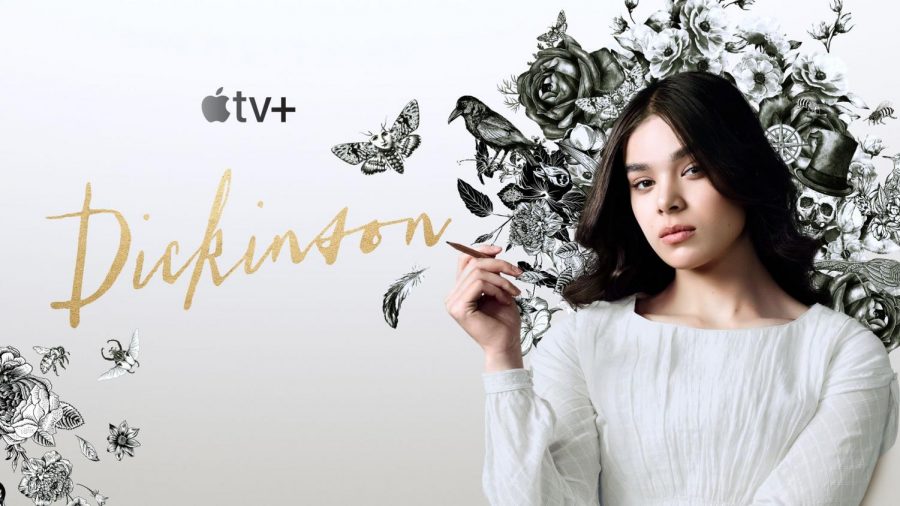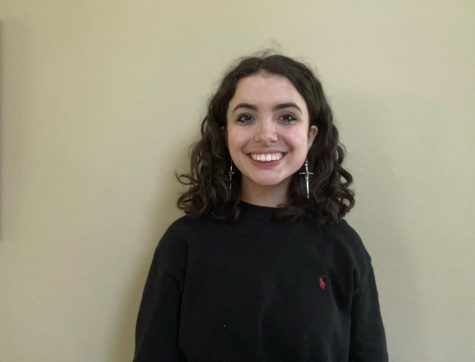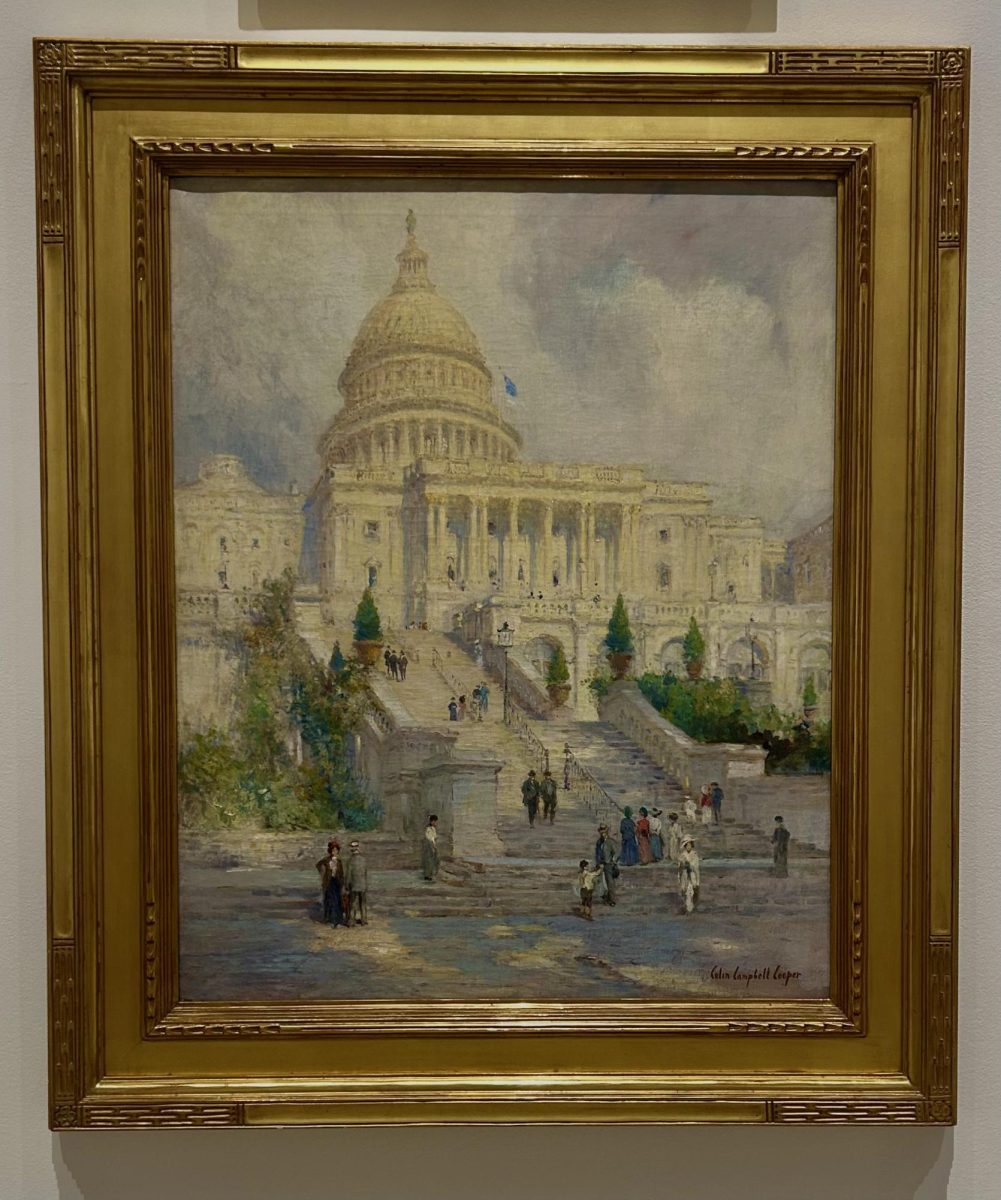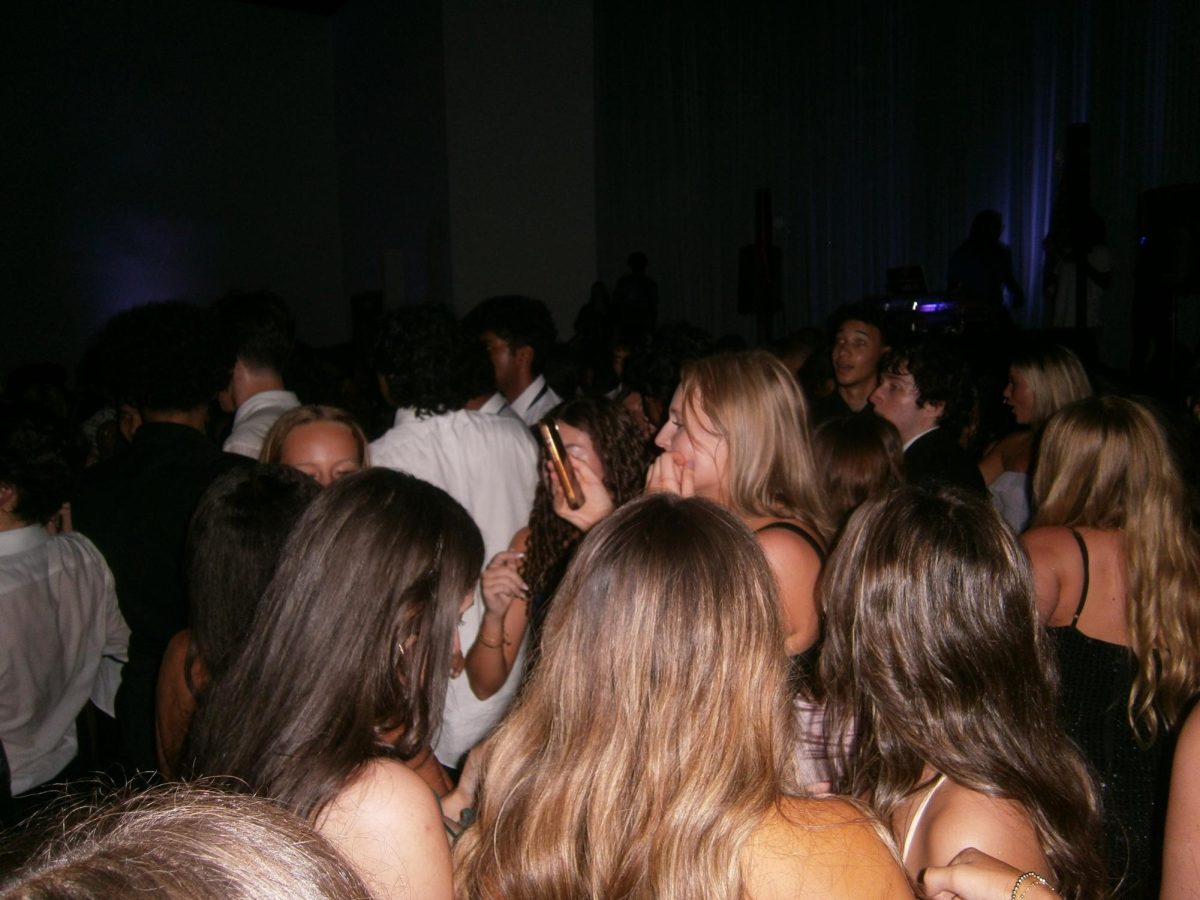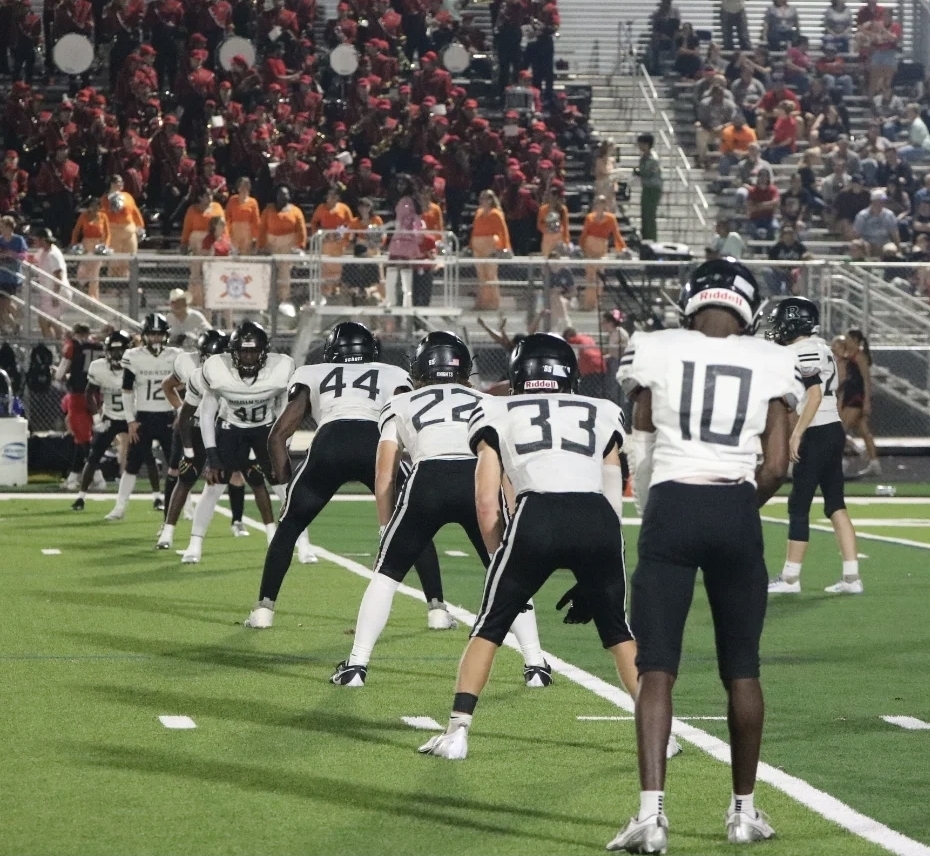Review: Dickinson breathes life into Emily Dickinson
Photo Apple +
The poster for Dickinson, featuring Hailee Steinfeld as the titular character Emily Dickinson.
November 14, 2019
When I first saw the trailer for Dickinson, a new show about the poet Emily Dickinson, it seemed like the least promising show of the year. It looked like a thousand other shows and I made a point to avoid it, but something about it kept painstakingly drawing me back until I clicked play on the first episode. Then the second. Then it was five hours later and I had just finished the season finale. Suffice to say, I’m hooked.
Dickinson starts off with Emily as a young woman, played by Hailee Steinfeld, who knows that she will be the greatest American poet of all time. Although Emily Dickinson is now known for being a recluse who never married, the show initially introduces two main love interests for her: Sue, Emily’s brother’s fiancée, and Death–played, of course, by Wiz Khalifa. Dickinson seamlessly blends modern elements into the Antebellum time period, to the point where I was getting whiplash watching Emily call a pig farmer “sexy.” This show isn’t just concerned with getting laughs, it knows when to be serious too, whether it’s Emily calling “bullshit” on gender roles or heartbreaking monologues about grief.
I always thought Steinfeld was one of those actors who is always too concerned with looking pretty to truly act, but she brought absolute life into Emily Dickinson, turning her from the hermit we know her as to a passionate and rebellious woman who is determined to be a poet. The casting department must have peered directly into my soul when choosing the cast, because almost everyone was perfect. I mean, they even got John Mulaney to play Henry David Thoreau, who was able to make a rather dry author (sorry Thoreau) into one of the funniest characters in the show. I did have one issue with casting, and it is that Khalifa cannot act. Casting him as Death was so shocking that I couldn’t help but love it, but his subpar acting skills ruined scenes that should have been moving.
Dickinson completely ignored every piece of period-accurate music and I’ve never been more grateful. Was I expecting to hear “Boys” by Lizzo during the second episode? No. Was it beautiful? Yes. They played Billie Eilish twice and both times I checked my phone to make sure it wasn’t playing music over the show’s audio. At one point during the finale I started to tear up, but then “All the good girls go to hell” started playing and I immediately had to stop.
This show ripped out my heart and curb-stomped it. Yes, it’s a show about Emily Dickinson that plays EDM within the first three minutes of the first episode, but it’s also the first show to make me cry. Ever. For a show about a woman who was obsessed with death and constantly surrounded by it I thought I would be emotionally prepared, but I was not.
Despite all the artistic liberties they took, I could still feel Emily Dickinson’s spirit in there. Each episode title was the name of one of her poem’s, and I practically felt my soul ascend whenever Steinfeld read out her poetry. The first episode started out with Steinfeld giving a short biography of Emily Dickinson’s life, including the fact that she spent the last part of it locked inside her house and never truly published her poetry. That acknowledgement helped add to the clear build-up of Emily’s character as they introduced her, to Emily Dickinson as history knows her. The show has already been renewed for a second season, with them leaving lots of plot points open to expansion in the future.
People can complain all they want about it not being true to life, but they can go watch a documentary while I go and actually enjoy myself. Dickinson‘s creators took a poet who had been cast by history as a dull woman, and transformed her into a person with nuance and personality. They gave her, not just her poetry, meaning, and for that Dickinson deserves every ounce of praise it has gotten and more.


